Ambrose Burnside, a Union General from Bristol, Rhode Island, personally experiences the highs and lows of war while fighting Confederate forces in the American Civil War.
25 minutes | 1861 - 1863
Hear About:
📜General Burnside's successful army-navy operation that enabled the Union military to drastically expand their blockade of Confederate territory.
📜How Brown & Sharpe and other Rhode Island businesses contributed to the American Civil War.
📜General Burnside's humiliating defeat at the Battle of Fredericksburg.
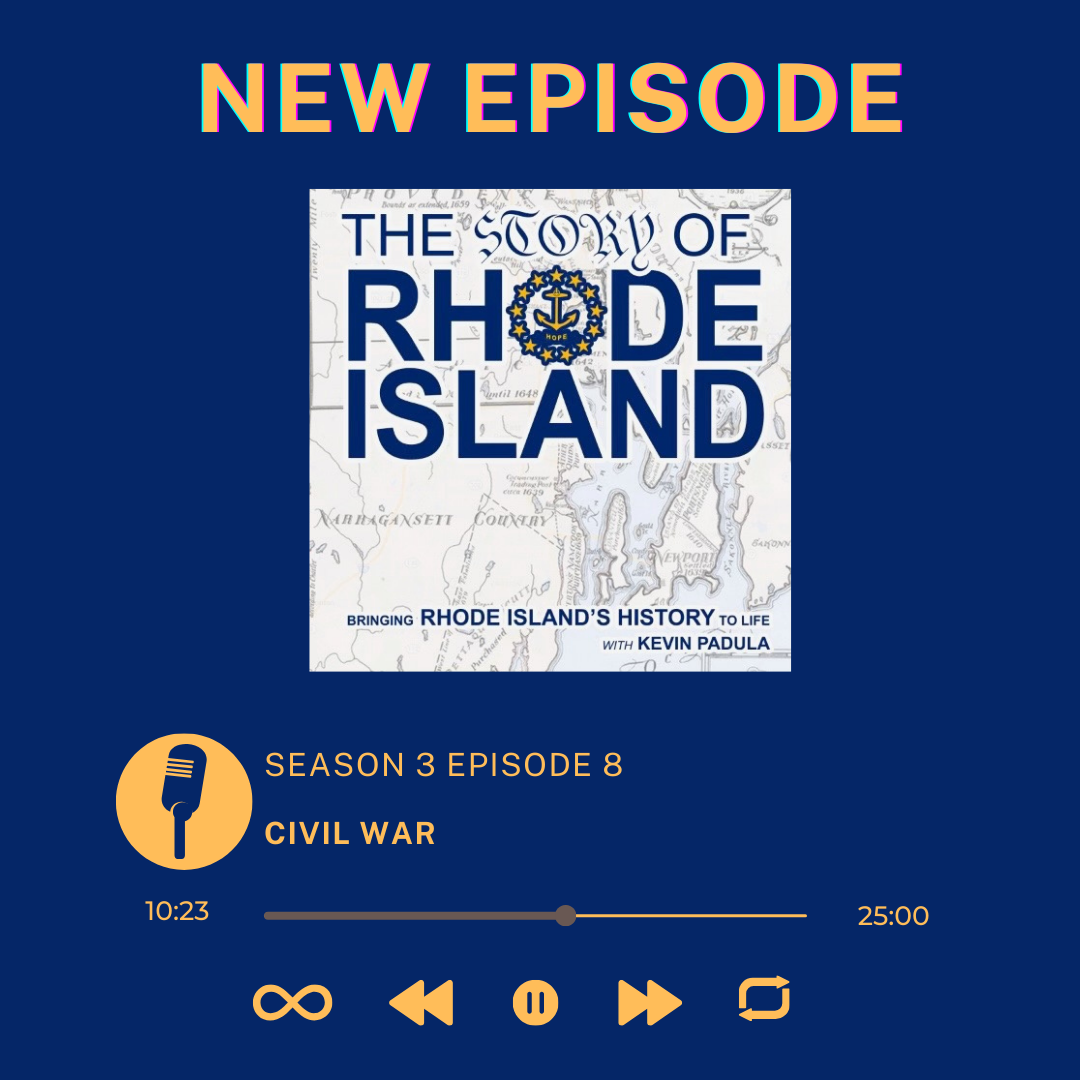
General Ambrose Burnside
Union General from Bristol, Rhode Island who has a significant impact on the American Civil War.
Joseph Brown
Genius inventor and co-founder of Brown & Sharpe.
Lucian Sharpe
Brilliant businessman and co-founder of Brown & Sharpe.
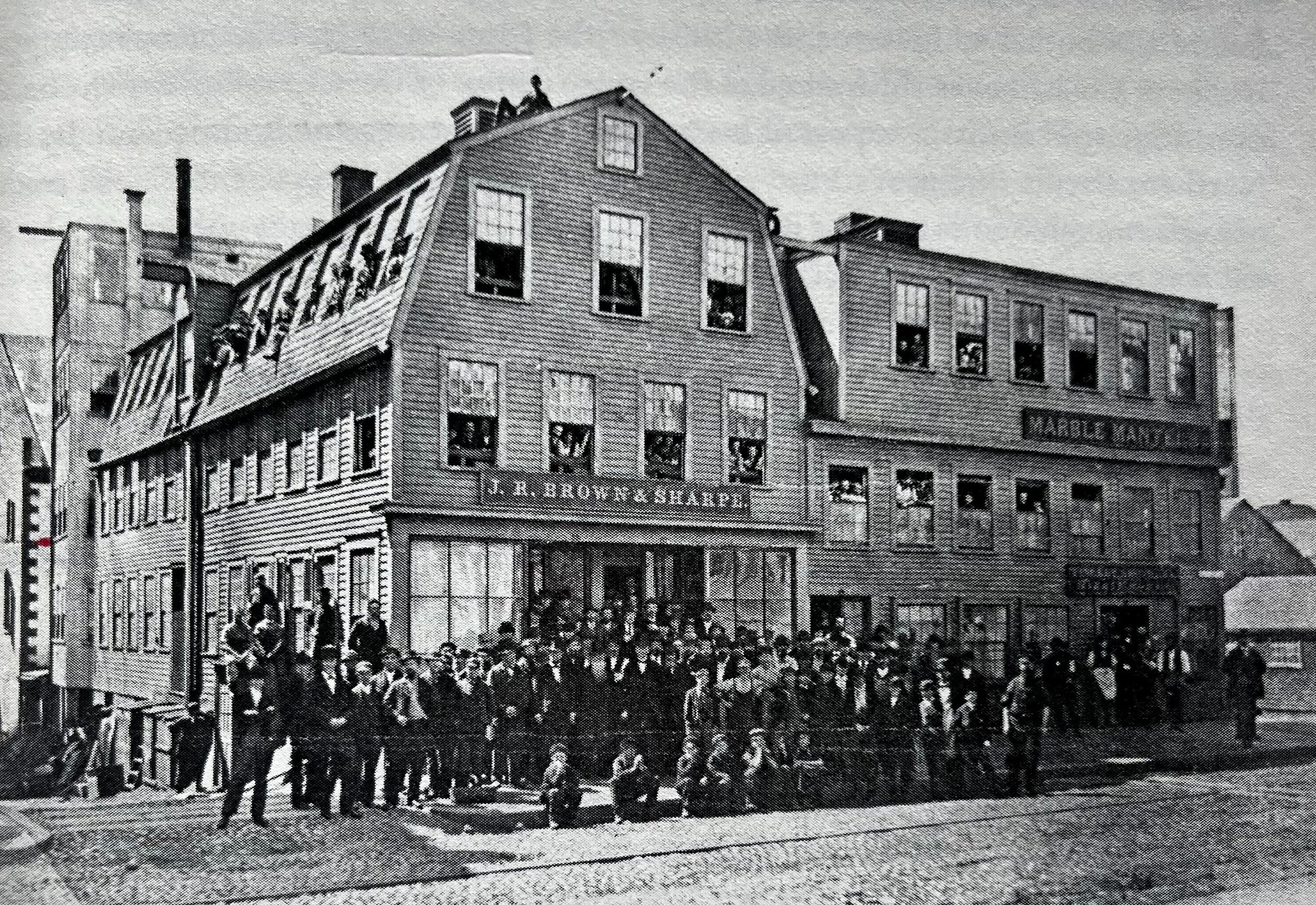
South Main Street | Providence, Rhode Island
Although the building that was once home to Brown & Sharpe is no longer standing you can still walk down the street where it once stood. Formerly located at 115 South Main Street, their shop created the machines the Providence Tool Company needed to be able to produce of 70,000 guns for the Union Army over the course of the Civil War.
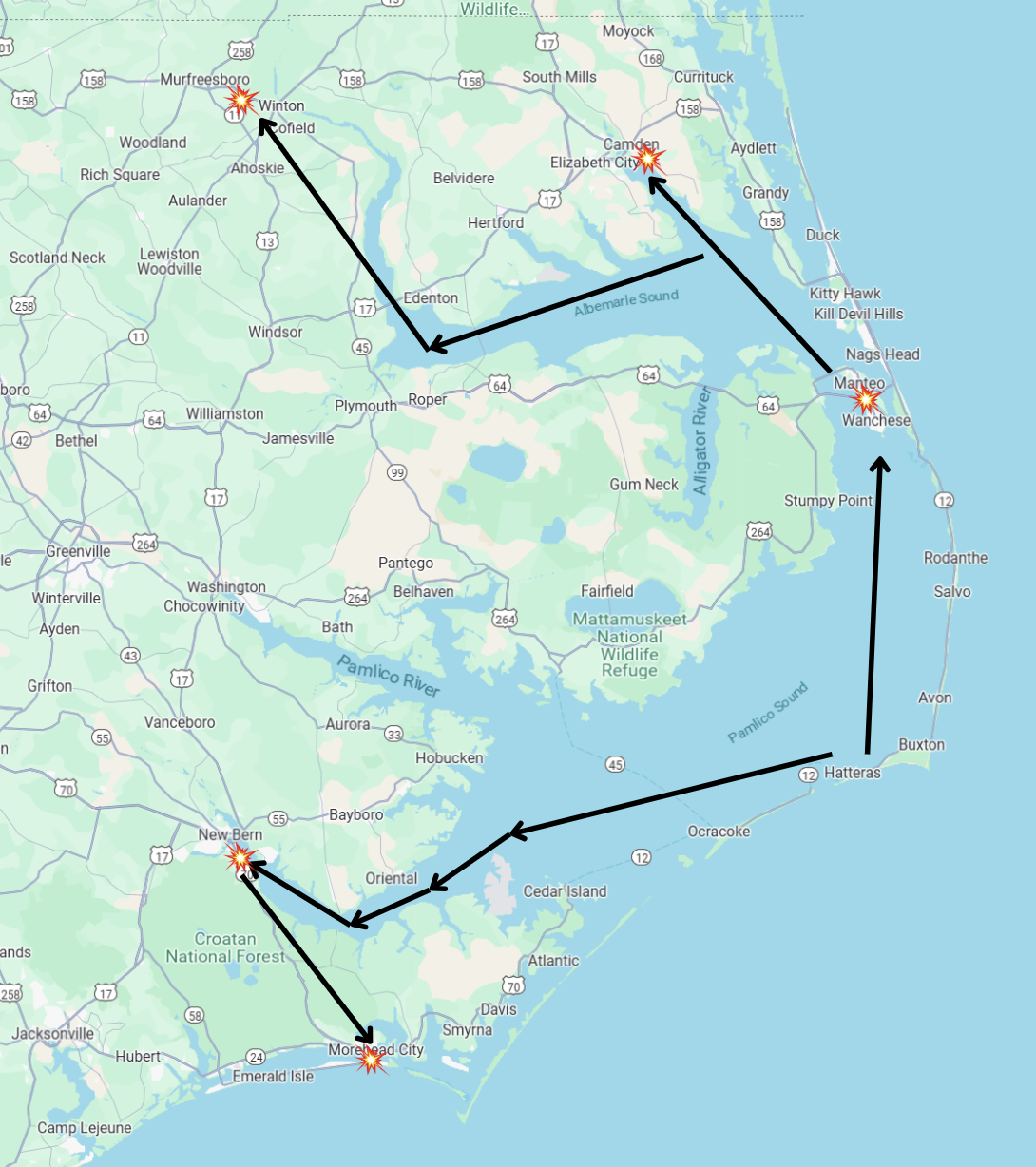
General Burnside's North Carolina Expedition | January - April 1862
General Ambrose Burnside's North Carolina expedition during the Civil War was significant because it marked one of the Union's first major amphibious operations. In 1862, Burnside's successful capture of the coastal city of Roanoke Island provided the Union with a strategic foothold in the South, securing vital waterways and disrupting Confederate supply lines. This victory also boosted Union morale and demonstrated the effectiveness of combined naval and ground forces in the war. It laid the groundwork for future Union advances along the coast.
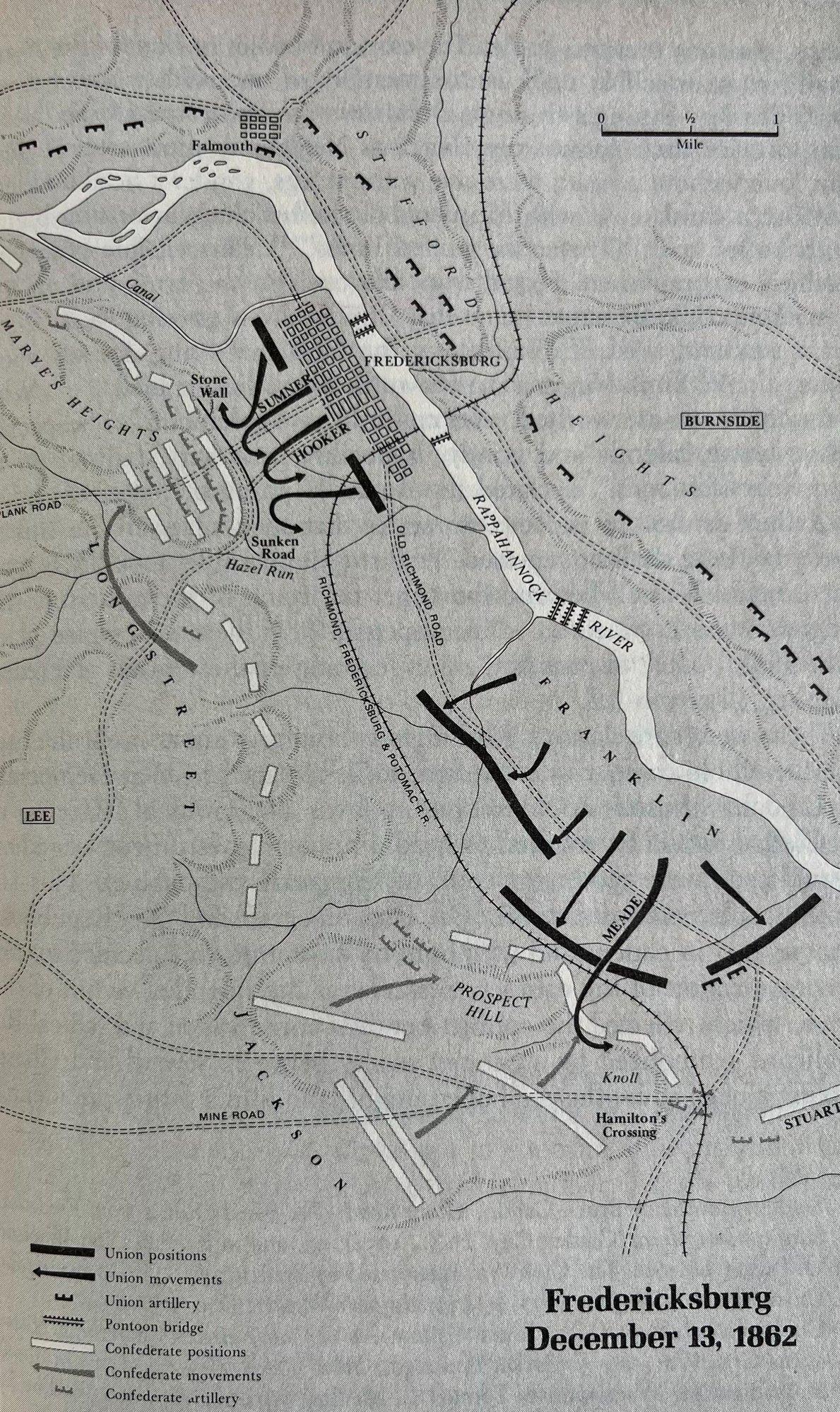
General Burnside's Fredericksburg Campaign | December 1862
General Ambrose Burnside's loss at the Battle of Fredericksburg in December 1862 was devastating for the Union Army because it resulted in a significant and humiliating defeat. Burnside’s frontal assaults on well-entrenched Confederate positions, especially at Marye's Heights, led to heavy Union casualties without making any substantial progress. The loss demoralized Union forces, tarnished Burnside’s reputation, and reinforced the perception that the Confederacy was formidable and resilient. It also delayed Union plans to capture the Confederate capital of Richmond, prolonging the war.
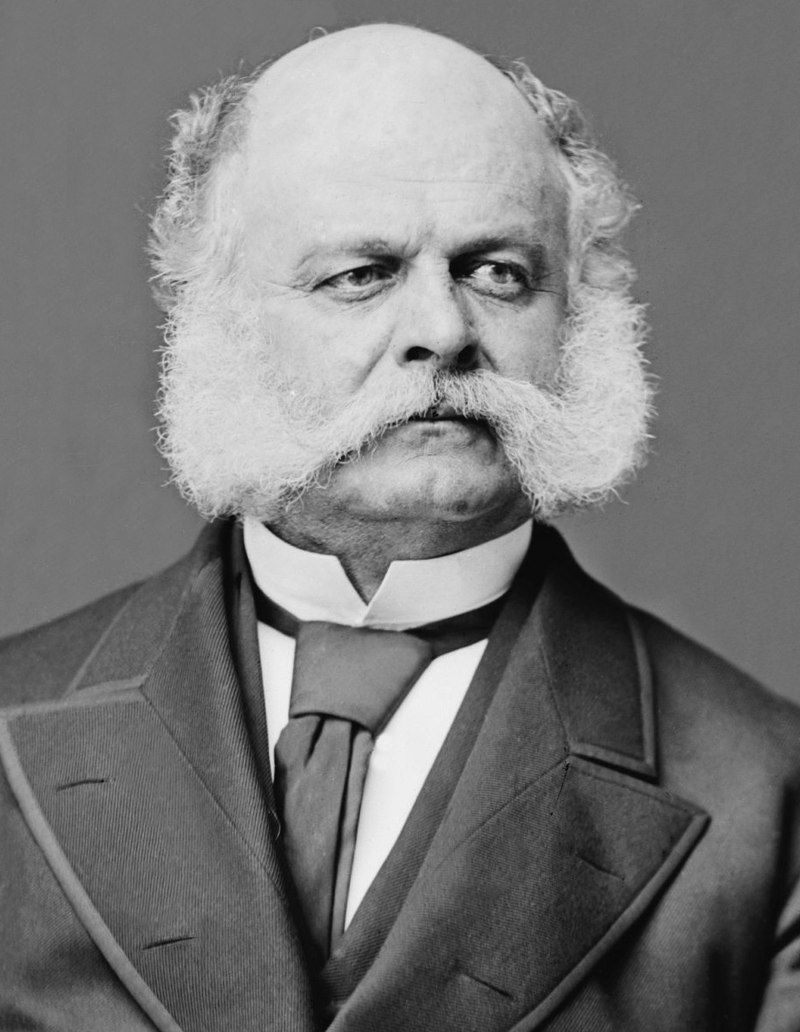
General Ambrose Burnside almost turned down the position as the Commander of the Army of the Potomac
After the removal of General George McClellan, President Abraham Lincoln turned to Burnside to take command. But Burnside, known for his modesty, was unsure about his ability to lead the army. His hesitation stemmed from self-doubt, as he didn't consider himself an experienced enough military strategist for such an important role. However, fearing that his arch-nemesis, Joseph Hooker, might be given the position instead, and after encouragement from friends and fellow officers—particularly his close friend, General William Franklin—Burnside reluctantly accepted the position.
- The Transformation of Rhode Island, 1790-1860 by Peter J. Coleman
- Our Story: The Lives and Legacy of Those Who Served in Battery B First Rhode Island Light Artillery by Stephen G. Evangelista
- Brown & Sharpe and the Measure of American Industry: Making the Precision Machine Tools That Enabled Manufacturing by Gerald M. Carbone
- Hidden History of Rhode Island and the Civil War by Frank L. Grzyb
- The Rhode Island Home Front in the Civil War Era by Frank J. Williams and Patrick T. Conley
- History of the Rhode Island combat units in the Civil War (1861-1865) by Harold R. Barker
- Rhode Island: A History by William G. McLoughlin